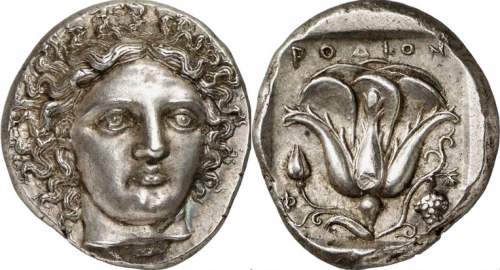Freud and Psychoanalysis (part A)
by
Charles Lamson
Freud's chosen topic was the human condition; how the individual comes to 'be' someone, a subject of immense scope and one which provides formidable obstacles to full appreciation. During the twentieth century Freud's theories had an immense impact on the study of psychology, linguistics and social theory that continues to this day.
Freud's relevence to the understanding of consumer behavior is diverse. His early writings put forward a psychodynamic notion of selfhood that relates to a conception of the human organism as comprising a storehouse of energy that develops and grows through the investment of energy into objects (people and things) and its return to the self that it nourishes. Problems can arise when the energy that has been invested is cut off. Freud's concept of the activity of the unconscious raises the question of consumer motivation. If desire is an unconscious process, then consumers are often not aware of their real motives for desiring things. In his later writings, Freud developed a complex explanation for the topography of the human mind. In this explanation, the self is a complex and conflicted entity which is comprised of three agencies. The id represents the demands of biology for immediate gratification. Pitted against the id, the superego represents the internalized demand of society for civilized conduct. In the middle is the ego that must constantly seek to reconcile the demands of the powerful forces of biology and society in attending to the survival and gratification of the person.
The Extended Self
Freud was an acute observer and one of the things he noticed which intrigued him was that infants and those who are ill or disappointed in love tend to be almost totally self-absorbed. In his earlier work on infant development (Freud, 1911) he had reasoned the existence of two principals; the pleasure principal and the reality principal. From birth infants are governed by the pleasure-unpleasure principal to the extent that they will strive towards those people and things that provide them with pleasure and will avoid those that do not. If satisfaction is not immediately forthcoming, the infant must learn slowly and painfully to accommodate herself to the demands of reality, for example by learning to defer gratification. Even so the lure of the pleasure principal is ever present, particularly for those adults who find that reality is so unbearable that they turn away from it to live instead in a fantasy world.
In a later paper Freud (1914) argued the same point in a different way by highlighting the role played by sexual energy or libido in the process. From the start the infant invests all his libido or sexual energy into her 'self'.' This self-absorbed or narcissistic self is an amorphous concept that includes the objects (by objects Freud means people and things) that provide her with satisfaction. as she grows older she must learn not only to defer gratification but to repress those instinctual impulses that come into conflict with the requirements of society. In order to do so she sets up an ideal inside herself, the ego ideal, which is modeled on a parent or another caregiver. The energy that was previously invested into the narcissistic ego is now invested into the ego-ideal, which constitutes an image of perfection that the child then strives to become. Development of a healthy ego consists in a departure from narcissism brought about by displacement of libido to an ego-ideal, imposed from without and satisfaction comes from fulfilling this ideal. Linked with the ego ideal is the superego, a censoring agency that constantly watches the ego and measures it by the standards of the ego ideal. Freud then had to consider what happened to the sexual instinct at this point. Overt expression of sexual desire is forbidden by most if not all societies and so societal pressure makes itself felt through increased superego control, leaving the ego the possibility of making one of two choices. Either desire is repressed from consciousness, in which case it retains the potential to be severely disruptive in later life; or the desire can be sublimated, i.e. the energy is directed towards an aim other than, and remote from, sexual satisfaction. Freud argues that some of society's greatest achievements; including all the great works of human culture, are the product of sublimation.

If one conceives of the 'self' as being constituted through investment of energy then being in love represents a flowing over of ego-libido on to the object (a person or a thing). We invest energy into those people and things that we love, i.e. those things that bring us satisfaction. When a person dies we do not simply mourn their passing but also our own diminution, because we are also mourning the loss of our own life force that we had invested in that person. This can be true of any object that is important to us: the pet that dies; the coat that is lost or stolen. If death is tragic then Freud marks out the melancholia that arises when one is slighted by another in love as being even worse.
Freud's explanation is challenging in that it affirms that the self is not confined in a container but is distributed among a range of people and objects. In this view the notion of a healthy 'self' is associated with a diverse range of investments in other people. From Freud's explanation that narcissism or self-absorption is the normal state for very young children it is assumed that only gradually will one learn to invest in others. This point is illustrated by Csikszentmihalyi and Rochberg-Halton (1981), who cite the different ways in which children of different ages in their study related to a refrigerator. The authors interviewed a 12 year old girl and her 15 yer old brother. Each of the children had independently mentioned the refrigerator as being special. The young girl would go to the refrigerator when she was unhappy and said she would feel better already at the thought of being able to fix herself a snack. The boy, on the other hand, said that the refrigerator gave him a good feeling because when his friends came over to visit he could open it and treat them to food or drink. Thus even at the age of 12 the younger girl is still relatively narcissistic in being primarily self-oriented, by viewing the refrigerator as a means of satisfying her own individual needs. By contrast her older brother expands the self outwards in considering how the refrigerator can create social bonds. The authors found that as adolescents mature so the relation with commodities changes. Youth tends to value objects which are associated with action and experience, for example musical instruments, sports equipment, pets and vehicles. Gradually, the boundaries of the self extend or expand outwards as energy is invested in friendships and partnerships such as marriage, so that others (husband, wife, children) become assimilated into the self-concept (Csikczentmahlyi and Rochberg-Halton, 1981). Whereas children focus very much on experiencing objects in relation to their individual self, older people cherish objects which link them to others and which recall memories. Objects such as painting and photographs are particularly valued as vehicles for contemplation.

If possessions can be regarded as part of the self then an unintentional loss of possessions should be regarded as a loss or lessening of self. Goffman (1961) discusses how institutions such as mental hospitals, homes for the aged and prisons seek to strip away a person's identity by systematically depriving them of all personal possessions such as clothing or money. Csikszentmihalyi and Rochberg-Halton view that our 'selves' are constructed in proportion to the amount of psychic energy which we invest. We should mourn for treasured objects which are taken away from us in a similar manner to the way that we mourn for our loved ones who die. The theory is that we are mourning our own loss of self, that bit of us which we have invested so much energy into and which has now been taken away from us. Belk (1988) reports that in a small-scale test which he carried out with burglary victims they not only felt anger but also reported feelings of invasion and violation. It can be imagined that in contemporary society, which is becoming progressively individualized, where possessions take the role of people and vice versa, that the investment of psychic energy into things is greater than ever before.
*SOURCE: FUNDAMENTALS OF MARKETING, 2007, MARILYN A. STONE AND JOHN DRESMOND, PGS. 71-74*
END
|

No comments:
Post a Comment